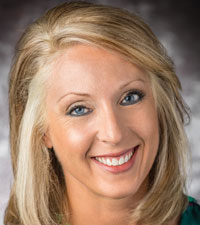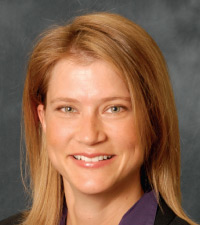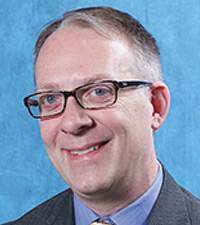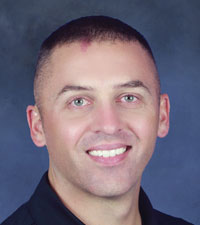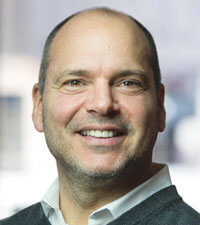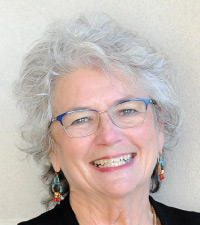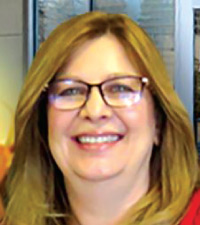Senior Living
The aging adult today is more tech-savvy, active longer due to advances in health care, and accustom to good services. Our seniors want convenience in their own home and have unique financial needs. It’s important that senior providers and communities keep up with these trends. Since we reach a lot of readers who are either nearing their retirement years or are the caretaker of a senior loved one, we feel it’s important to highlight living and care options here in Omaha that are committed to listening to and delivering what aging adults need at this stage in their life.
Emphasizing the importance of planning early for retirement and senior living arrangements was Jennifer Knecht, vice president of marketing and sales at Immanuel. Jennifer pointed out that retirement communities aren’t just for seniors who need healthcare support—there are so many more benefits including maintenance-free living, health and wellness opportunities, lifelong learning, organized social events, travel opportunities, and community involvement.
“Retirees no longer want a ‘restful’ retirement,” Jennifer revealed. “They see this time as an opportunity to explore new passions and build new friendships. Retirement communities help support residents with whatever their retirement goals might be. Rightsizing, ensuring your home ‘fits’ in your season of life, is often the first step in retirement planning. We find many seniors looking for smaller homes and apartments that allow them to spend less time mowing the yard and more time checking off their bucket lists.”
“Family members should know that there are many ways to help loved ones as they age,” added Jennifer. “Beyond keeping an eye on physical conditions, we see many family members take an active role in touring retirement communities as well as conducting online research of care options, but the retirement living space is crowded and confusing with so many communities looking the same and even offering similar amenities. Industry-wide, we’re seeing a significant shift away from local providers toward national chains. This has caused a sharp disconnect between senior resident needs, community maintenance, and profit-driven corporate decisions. Compare financial and corporate strategies: What percentage of profits above operational expenses will go into community and program improvements? How is quality measured? Immanuel is deeply rooted in Nebraska. We were founded in Omaha over 131 years ago and since then have been committed to a not-for-profit mission. What this means for residents and participants is they know that we are dedicated to significantly investing directly into enhancing programming, updating our buildings, and supporting other like-minded community organizations.”
There really are a lot of options out there in terms of senior living and care, and more options continue to pop up as Omaha grows and the baby boomer generation retires at a record rate of 10,000 a day. One of the newest senior living options is Ovation by Avamere in the new Heartwood Preserve development in West Omaha. Ovation by Avamere offers an “Active Adult Lifestyle Village” consisting of 150 independent living, 90 assisted living, and 60 memory care residences spread across a two-building campus with a full continuum of care. These residences embrace high-end finishes, technologically advanced features that assist with wellness, comfort, and communication, multiple culinary venues, a spa, robust lifestyle programs, and high-touch customer service. Ovation residents will enjoy shopping, dining and entertainment just across the street.
“The development embraces the culture of exceeding and anticipating the expectations of our residents and engaging those we serve in the Ovation Culture,” said Nicolette Merino, president of Ovation by Avamere in Omaha. “Our focus is on a well-balanced wellness program that encompasses all dimensions of wellness and working with each resident to engage them in an active lifestyle.”
“The key to making the best choice is to match your residence with your lifestyle and desires,” Nicolette advised. “Think about what you want your average day to look like. Find a residence that can meet those wants and desires. If you are looking for a new living situation, take the time to tour the property, meet the staff, and engage in the residence before you make a decision. Ovation encourages those seeking an environment of wellness and engagement to visit our Reservation Showroom to see all that Ovation has to offer the discerning active adult.”
Seniors have more options than ever these days, whether they want to move to a community or stay at home. Hillcrest Health Services offers both of these services for aging adults in the Omaha region, serving almost 1,500 seniors every day.
“Since Hillcrest offers a variety of different service options, we welcome the opportunity for aging adults and their families to talk with us about those options and all of the possible paths they might consider as they age,” noted Jim Janicki with Hillcrest Health Services. “From assisted living and long-term care, to our Caring Companions private-duty service, we have options to help seniors age their way. We even have an adult day center, The Club at Hillcrest Maple Rose, designed for individuals who live at home but could benefit from social contact with friends their age. We also know that helping a loved one through a transitional period can be difficult, so we offer multiple support groups to help family members and caregivers through these situations.”
If you have a beloved elder family member who needs more care than you’re able to provide, moving into an independent living community may be a positive solution. Oasis Senior Advisors in Omaha is an outlet for caregivers to find support. The professionals at Oasis offer free senior housing placement services so you can find the right community that meets the needs of your loved one. Oasis Senior Advisors relies on their cutting-edge OasisIQ™ software, as well as their extensive knowledge of the community, in order to reveal the best option available to each specific client.
There is no denying that it is a little scary and even embarrassing to realize you need a caregiver as you lose bits and pieces of your independence with age. Not being able to hear or see as well as you used to, or even being unable to keep your balance when you walk or try to carry something, can really be hard to accept. Kyle Johnson, president of Care Consultants for the Aging in Omaha, said he typically sees seniors wait too long to ask for help. Adult children tend to notice signs of independence loss before the senior does, but they are hesitant to say something out of fear of upsetting their parents. This is a dangerous scenario of waiting for the “major incident” to happen before getting help in the home.
“Clients that we begin services with are typically just starting to notice the difficulties of living independently in their own homes, and are starting to need assistance with their daily activities,” Kyle explained. “We are the largest Home Care Registry in the State of Nebraska and our model is different than any other home care provider available to clients. All of our caregivers are licensed CNAs and work as independent contractors for their clients. Before any caregiver is allowed to work with a client, they are run through all background checks, criminal history reports, work authorization in the United States, CPR certified, must carry their own professional liability insurance, and are bonded through our company. Our rates are the most competitive in the industry and have the ability to start services with no upfront deposits or hourly minimums. The care we provide is client-directed, ensuring that you make the best, informed decisions for yourself and your loved ones.”
There are aging seniors who desperately want to stay in the home they’ve lived in for 50+ years, even if it is just for a short-term rehabilitation time. This is why in-home care is such a great option to have. If you are currently unable to be active due to an injury or impending surgery, it’s important to plan for rehabilitation in order to return to a healthy, active lifestyle as soon as possible.
Home Nursing With Heart provides professional staff who go into the homes of their patients to treat various ailments, post-surgical conditions, and provide physical and occupational therapy. Medicare generally covers these visits financially for the patient. They can also evaluate the home environment and make suggestions for modifications so that patients are able to continue to stay in their homes as long as possible. Since most injuries and falls happen in the bathroom, bathroom modifications/safety equipment may need to be considered as a priority. This can be as simple as grab bars, removing rugs, obtaining a toilet seat riser, etc.
“At Home Nursing With Heart, we have an occupational therapist conduct a safety evaluation in the home and make specific suggestions to improve safety,” confirmed Jim Laughlin, Home Nursing With Heart’s chief operating officer. “When challenges are identified, we work with the patient, their family, and many times a medical social worker to help make the best choices for the patient and ensure they stay safe and happy.”
Life will certainly bring changes and challenges. Preparing for your senior years and these changes may result in stress or confusion. Change can feel overwhelming and finding solutions become time-consuming. This is why Bridge to Better Living and their staff of transition consultants decrease the anxiety and worries that come with searching for a new lifestyle by sharing their extensive knowledge and resources. They emphasizes the importance of knowing what is best for the client, focusing specifically on their needs.
“It is important for us to first build a relationship with the client and discuss with them an educated plan to move forward,” said Robbie Nathan, training director for Bridge to Better Living. “Our transition consultants discuss communities that fit the client’s unique needs and wants, arrange tours with the communities when the clients are available, and act as their personal guide. Focus is placed on the client; there is no bias, no wrong directions, and the service Bridge to Better Living offers is always no-cost to the client. A transition consultant accompanies their client on each tour and takes notes pertaining to the community being visited. Our staff has over 150 years of experience and each consultant is aware of the processes essential for successful placement.”
Robbie acknowledged how too often people want to wait until “it’s time.” However, it is better to plan ahead, learn the possibilities, see the choices in different styles of living, and develop a “Plan B” for the future. Communities may be similar, but they are not one size fits all—each living option offers diverse services, amenities, plans. If you’ve seen one retirement community, you’ve seen one retirement community.
“Neighbors, friends, and families all experience various outcomes from their choices—not everyone is the same.” Robbie stated. “We want clients to think about what is best for them. Is there a specific location they want? How many meals would be available? Is transportation necessary? Will an on-site medical staff be necessary? Is the cost affordable? What type of payment is required? Are there fitness rooms? Square footage and lighting are also important factors to some. These are all taken into account when we assist in placing seniors in a new place that they can happily call home.”
Bridge to Better Living’s motto is Placement with Passion, and they take it seriously.
One of the biggest factors for families when determining living and care options is what they can afford, which is mainly based on what type of insurance provider and plan they have. To tell us more about this, we talked to Lynn Hummel, RN, clinical administrator of Brookestone Home Health Care.
“If switching from Medicare to an advantage plan, be sure that the plan covers what you believe your needs are now and in the future,” Lynn stated. “As we age, most people need more coverage. Determine if out of pocket expenses are something that you can afford to meet. Long-term care insurance is a big help for aging seniors. Let family members know your wishes and remember that it’s never too early to set up power of attorney, living wills, etc.”
“Due to the nature of our business, our services are billable to insurance companies as long as there is a skilled need,” Lynn explained. “A big factor that needs to be considered is the cost for supplementary services such as private duty or facility placement. When choosing any provider, be sure to ask questions about their range of services, the company history, quality of care standards, how services work, and payment. Many people who qualify for VA benefits aren’t even aware that they have this benefit.”
It is projected that by 2020, over 20% of the US population will be 60 or older, totaling over 77 million people. In Nebraska alone, the need for staff and caregivers in skilled nursing and assisted living will grow by 19%. This growth outlook and change in mindset among the aging population demands qualified professionals who can offer ideas and solutions to address the opportunities of this group. Individuals in industries like finance, health/wellness, business, and marketing would all benefit by having a key understanding of the multi-disciplinary fields of elder care.
The University of Nebraska offers bachelor’s degrees, master’s degrees, and certificates in gerontology, long-term care management, social work, and human and family service administration. With the University’s online programs, many adult students are able to pursue higher education while juggling multiple demands including work, family, and other commitments. Here is a testimony from one of these students:
“I became an advocate for elderly and disabled people within the realm of interior design. The fully-online Gerontology, Interior Design graduate certificate program from the University of Nebraska allowed me to combine my desire to serve the aging community with my passion for interior design. The program enabled me to critically think about accessibility issues.” – Emily Drummy, Architecture, MS and Certificate in Gerontology, UNL and UNO
Whether you are the one considering retirement plans, senior living options, in-home healthcare needs, or ways to make your life easier as you age, or you’re the caretaker for a senior loved one, we hope you learned a few things about what and who is available in Omaha to help you along the way.


